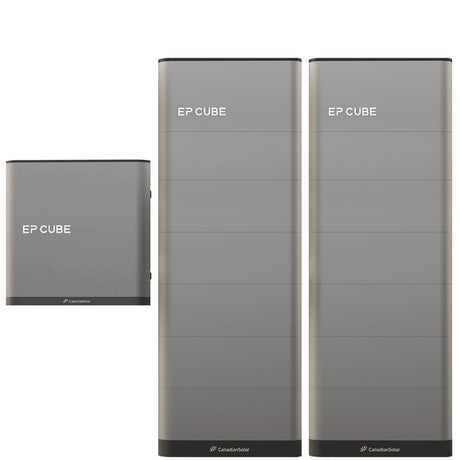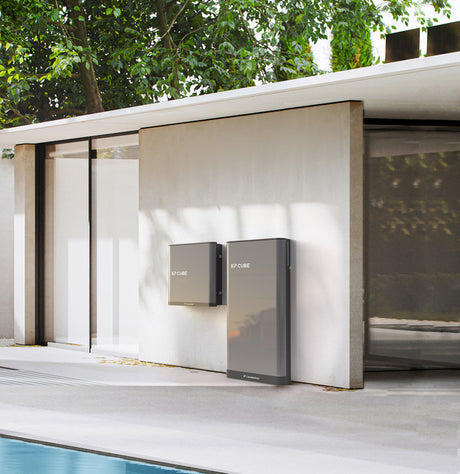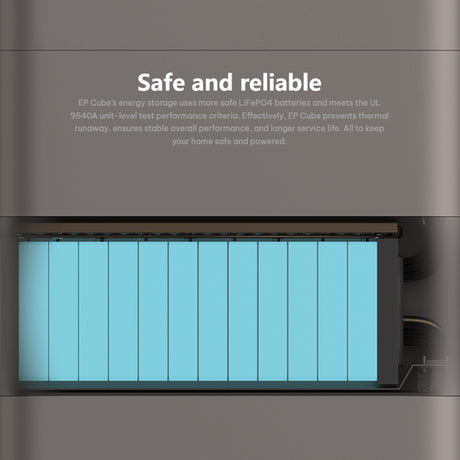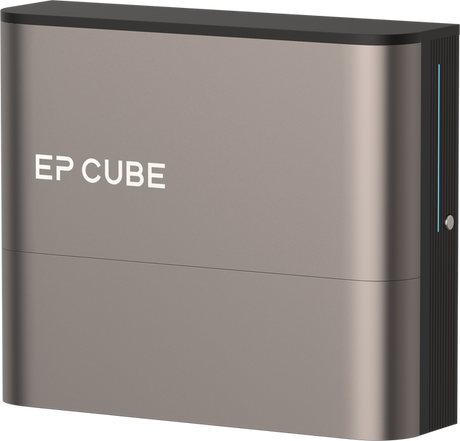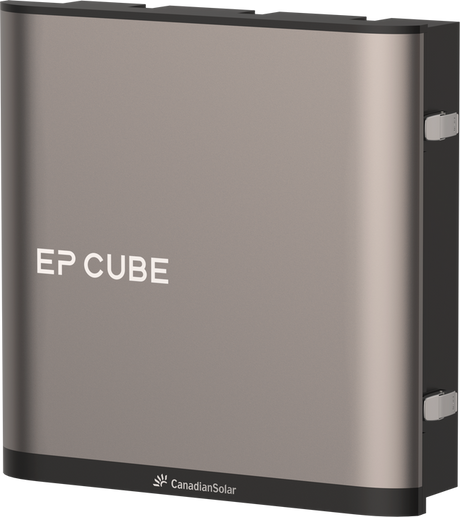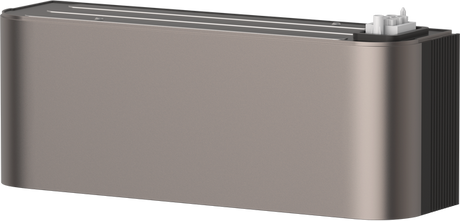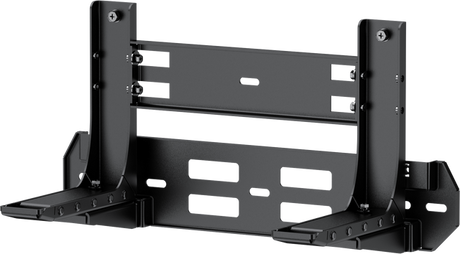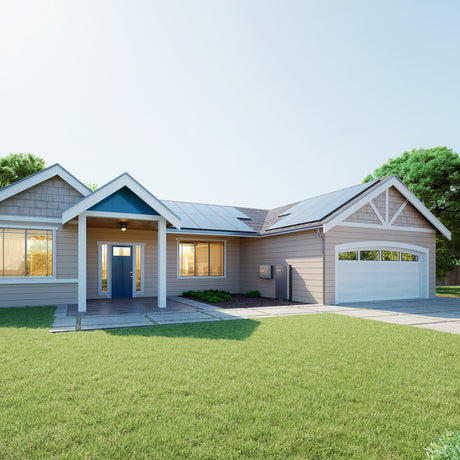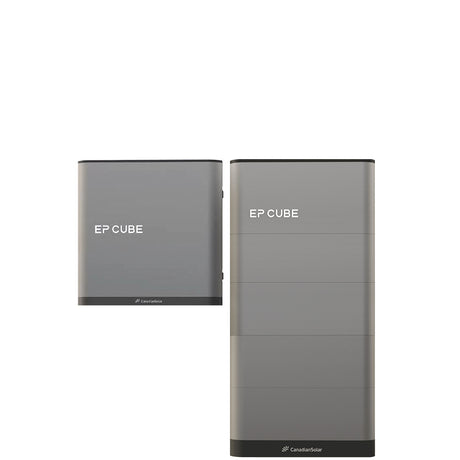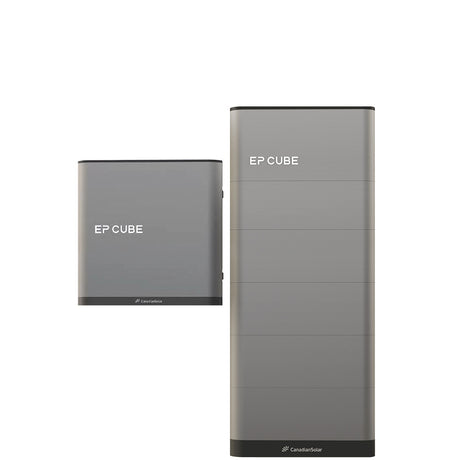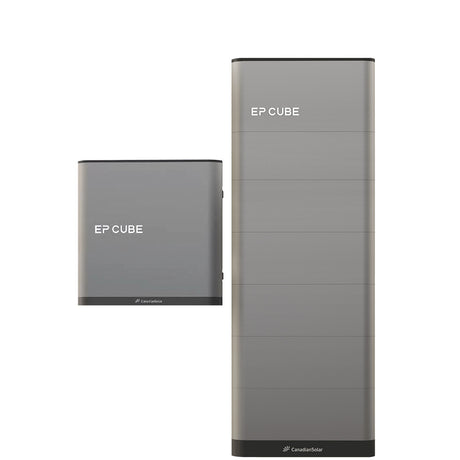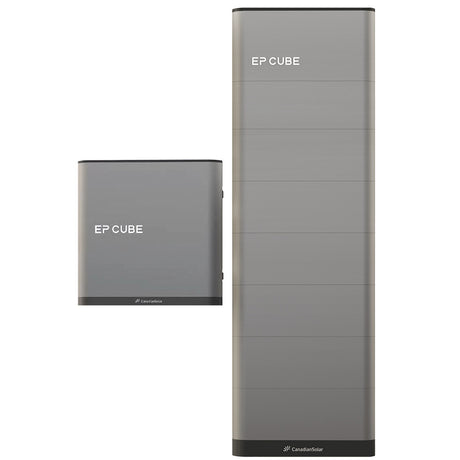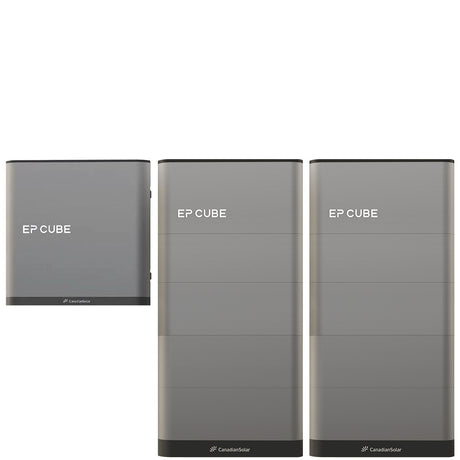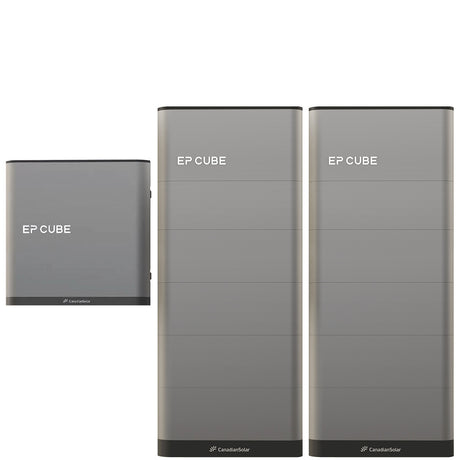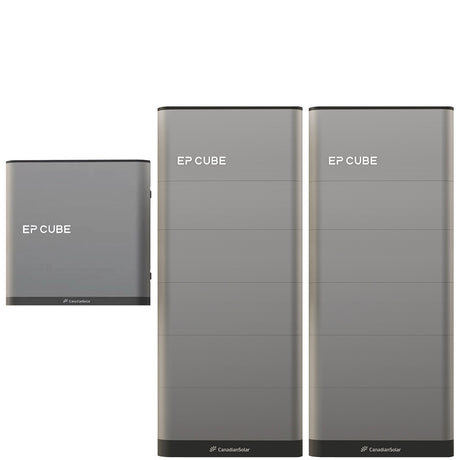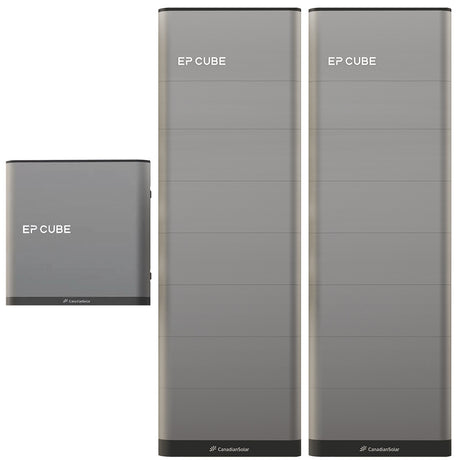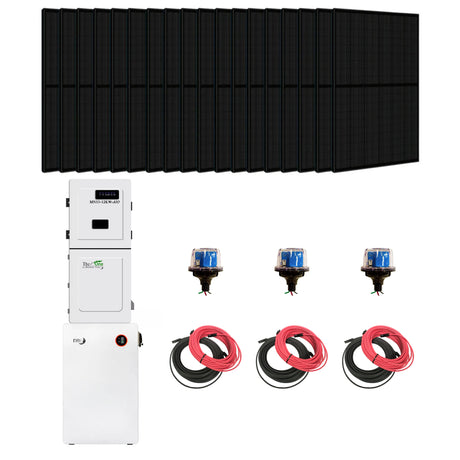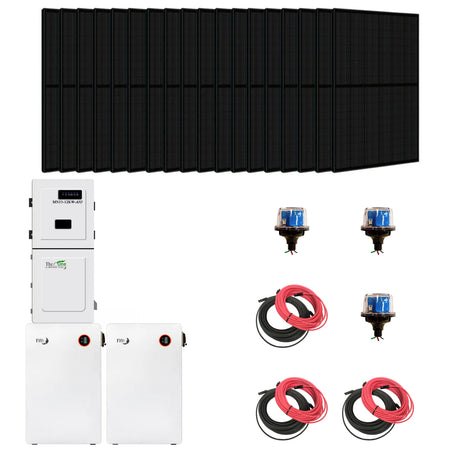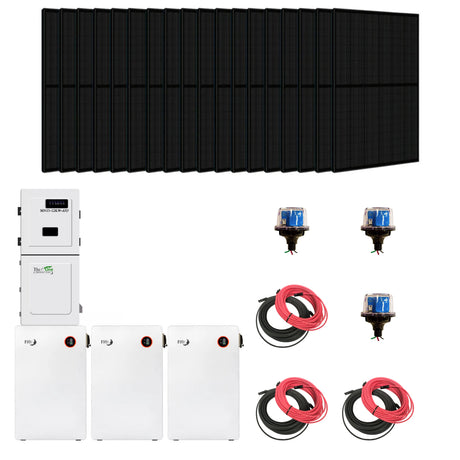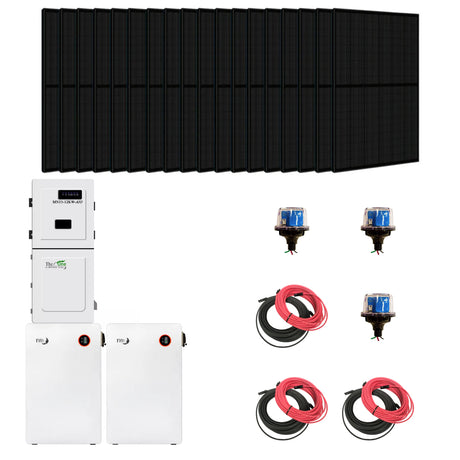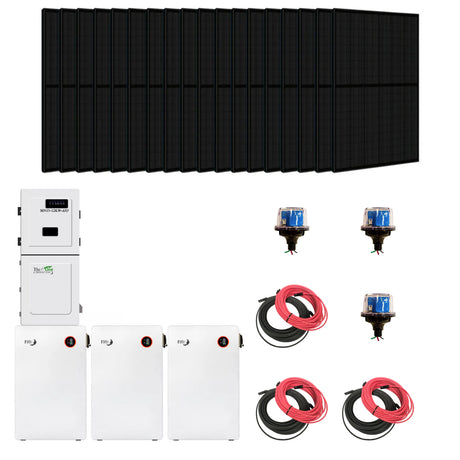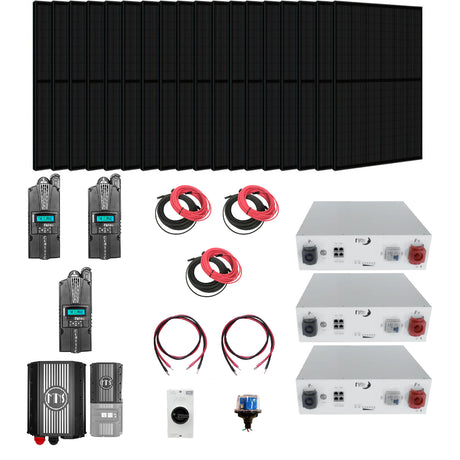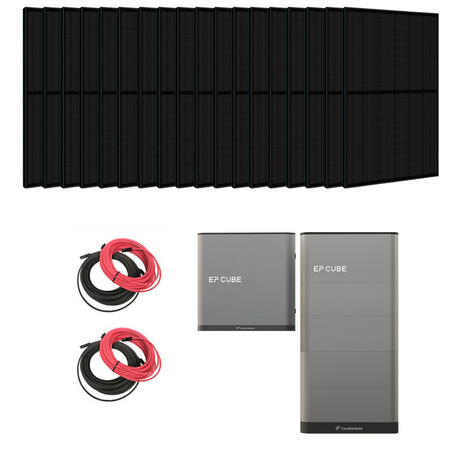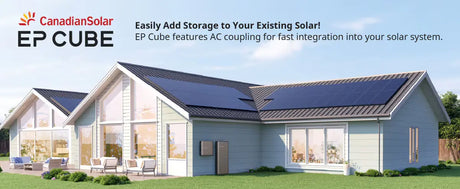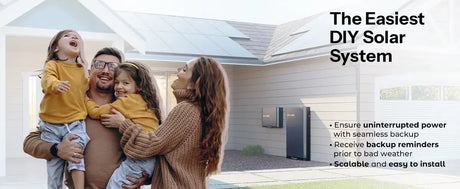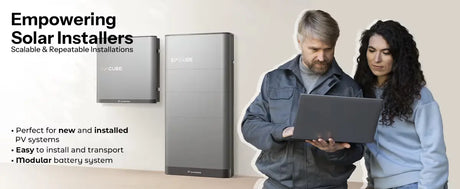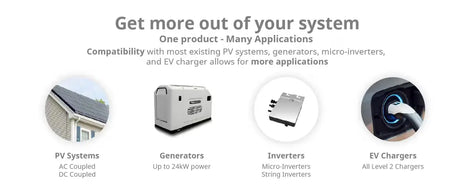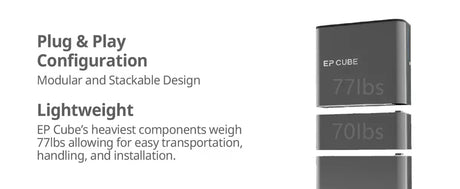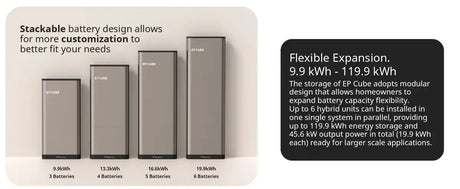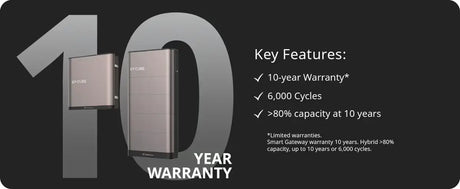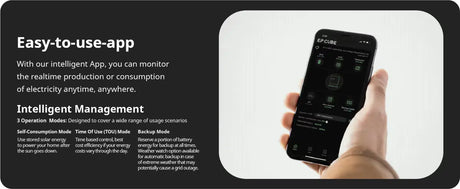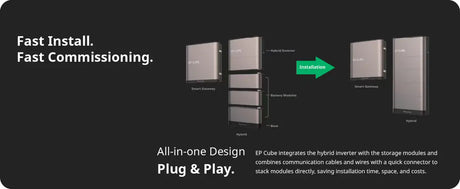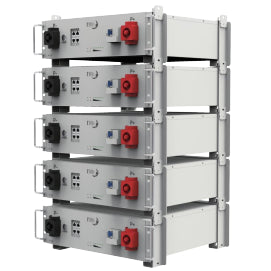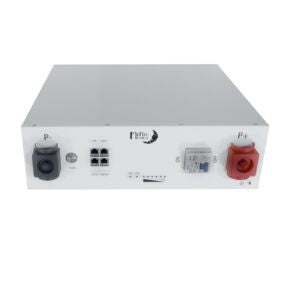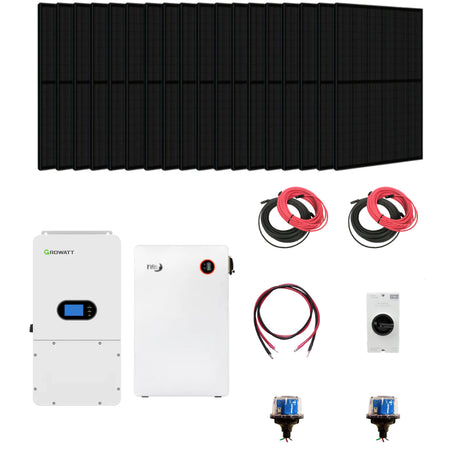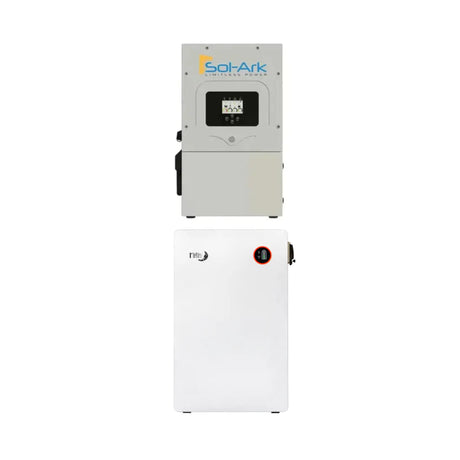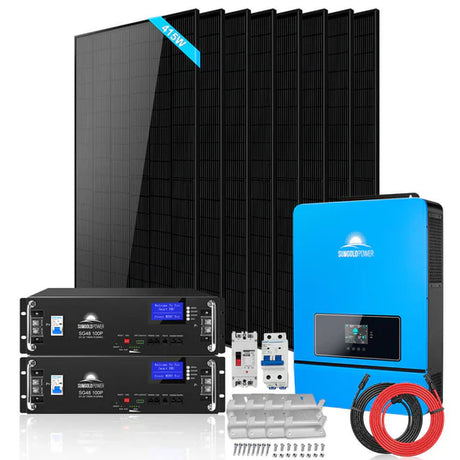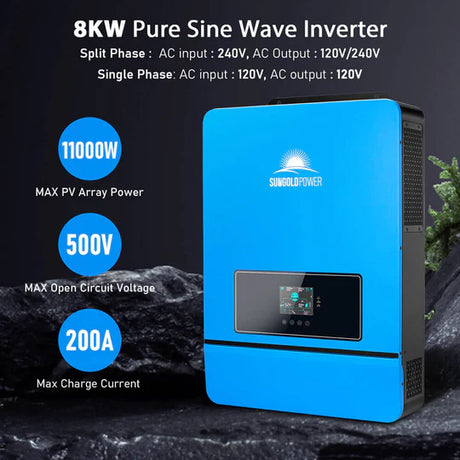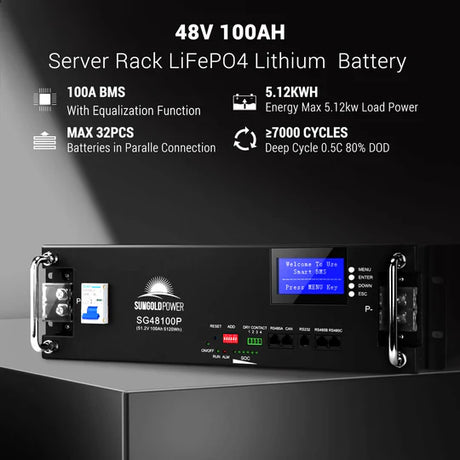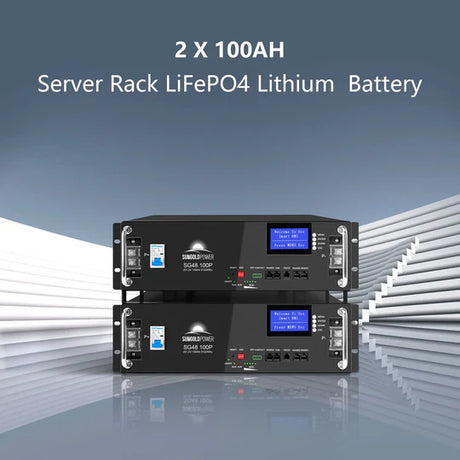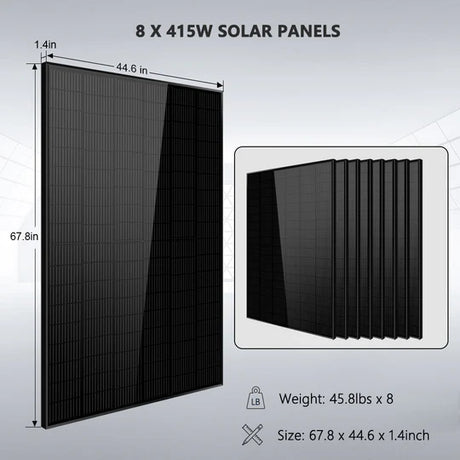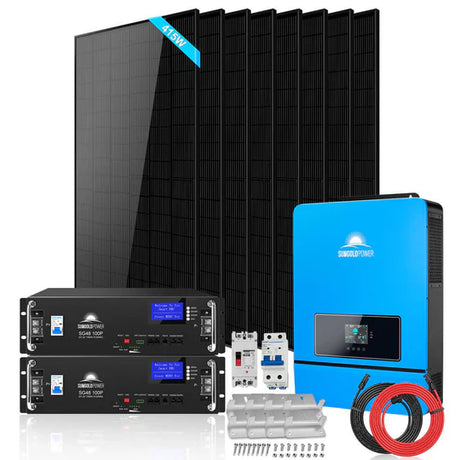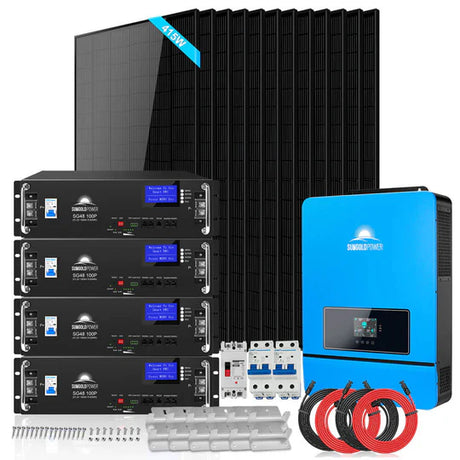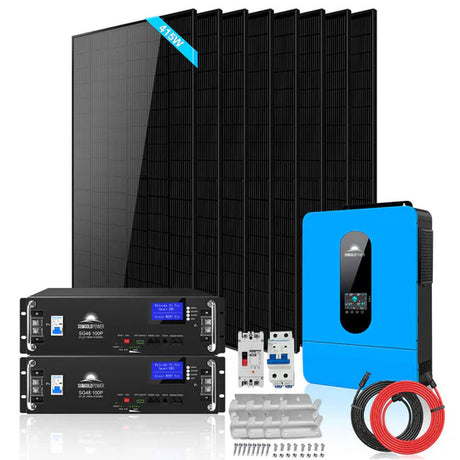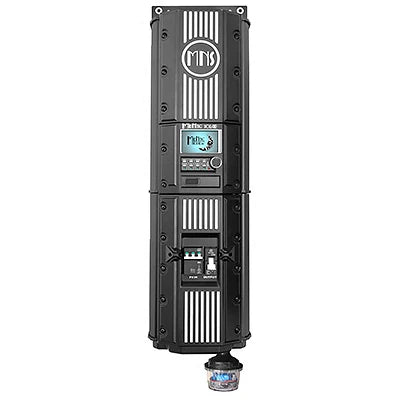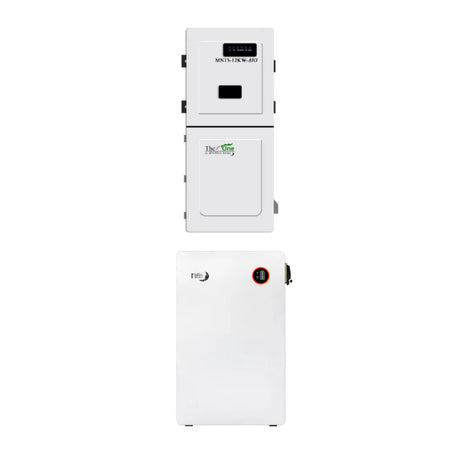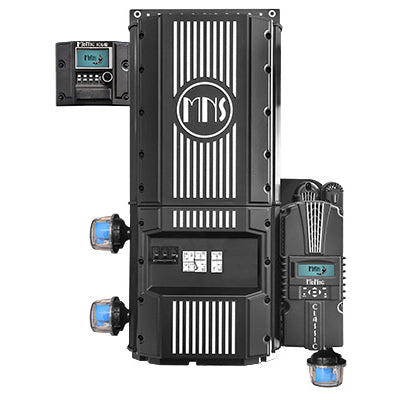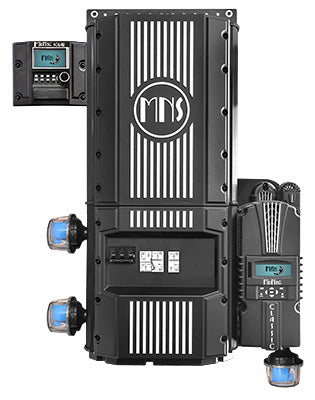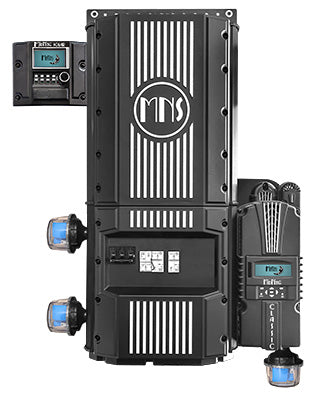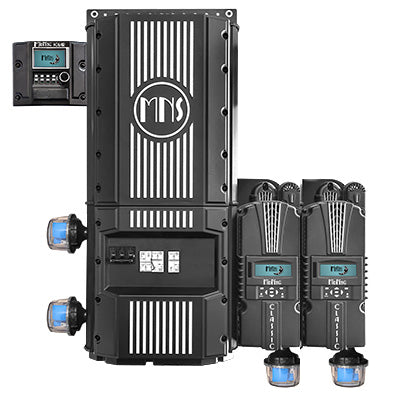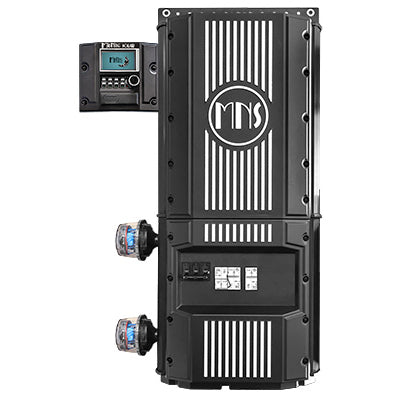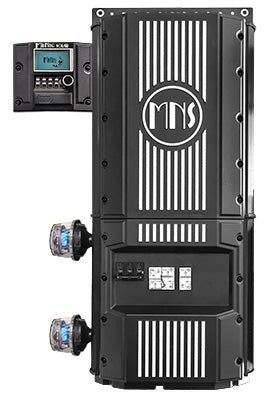- Up to 20% off
Canadian Solar
Canadian Solar EP Cube Energy Storage System - All-In-One Solar Backup Power
From $7,649.00$9,560.00Unit price /Unavailable - Up to 23% off
Midnite Solar
From $15,178.49$19,803.18Unit price /Unavailable Midnite Solar
$11,809.39$17,383.84Unit price /Unavailable- Up to 23% off
Canadian Solar
From $12,437.97$15,326.88Unit price /Unavailable - 14% off
Midnite Solar
$5,399.00$6,299.00Unit price /Unavailable Portable Sun LLC
From $9,164.05$10,636.86Unit price /UnavailablePortable Sun LLC
$9,949.29$11,599.99Unit price /Unavailable- Up to 21% off
SunGold
From $5,502.00$6,999.99Unit price /Unavailable - 23% off
Sol-Ark
Sol-Ark 15K-2P + (2) Discover Helios 16kWh Batteries | 32kWh Whole-Home Backup Power Bundle
$14,699.00$18,999.00Unit price /Unavailable Portable Sun LLC
$8,599.29$9,699.99Unit price /Unavailable- 12% off
Pytes
Pytes V5 20.48 kWh LiFePO4 Solar Battery + Outdoor Cabinet | Whole‑Home Energy Storage
$7,043.00$7,999.00Unit price /Unavailable Midnite Solar
$9,149.39$10,294.29Unit price /Unavailable- Up to 8% off
Midnite Solar
From $7,049.29$7,700.00Unit price /Unavailable - 8% off
Midnite Solar
$5,999.29$6,500.00Unit price /Unavailable
What Is a Solar Kit?
A solar kit is a set of components that make up a solar system. It includes solar panel bundles, solar battery storage, an inverter, a charge controller, and mounting and wiring equipment. Depending on the model, it can be a home solar solution or a portable solar system.
Different Types of Solar Kits
Here is a breakdown of the different types of solar kits:
- Grid-tied solar kits. These are solar kits for homes and buildings. They connect to the power grid—it’s where the extra energy goes.
- Off-grid power kits. These are solar kits with batteries. They’re designed to store excess sunlight for cloudy days and nighttime use.
- Hybrid solar kits. These solar power systems combine the previous two types. They connect to the grid but come with a battery for independent supply during power outages.
- Portable solar kits. As the name suggests, these systems are mobile. They’re perfect for off-grid living, as well as camping, hiking, and other outdoor activities.
4 Major Benefits of Using Solar Kits
The major benefits of using solar kits include energy independence, cost savings, durability, and eco-friendliness.
Let’s explore them in detail:
1. Energy Independence
A solar kit allows you to stop relying on traditional forms of energy supply. If you choose an off-grid system, you’ll have complete independence—with a battery, you can save energy and use it when it’s convenient for you.
2. Cost Savings
Going solar is a great way to save money on utility bills in the long run. Your investment will quickly pay off, exceeding the solar kit price. When you add the panels’ long lifespan to the equation, the savings continue to grow, making solar energy a smart financial choice.
3. Durability
All solar kit components, from panels to inverters, are designed to withstand different weather conditions, including rain, wind, and snow. On top of that, they require little maintenance.
4. Eco-Friendliness
When you switch to solar power, you’ll make a significant difference in preserving nature. Namely, a solar kit includes everything you need to reduce your carbon footprint—the panels absorb sunlight, and the battery stores it, allowing you to use clean energy around the clock.
How to Choose the Right Solar Kit for Your Needs
There are several factors to consider when choosing the right solar kit for your needs, including your power requirements, battery capacity, portability, size, and warranty.
Let’s analyze them in more detail:
1. Power Requirements
Your power requirements dictate the solar kit type you need. Do you want to use solar energy to cover a part of your needs or power your entire home with it? Is there a power grid you can connect the system to? Answering these questions will bring you closer to the right choice.
2. Battery Capacity
Battery capacity is a key factor if you want to store energy for later use. This is especially important if there’s no grid to connect to. In this case, the battery will be your only source of power when the sun isn’t shining.
3. Portability and Size
Solar kits vary significantly in size, ranging from small portable systems to large ones designed to power a household. If you need a solar kit for camping, the former is likely the way to go.
4. Warranty
Your solar kit should last you a long time, so make sure to check its warranty coverage. With a good warranty, you’ll be protected against issues with panels, batteries, inverters, and other components for 10 to 25 years.
Solar Kits FAQ
1. Can I install a solar kit myself?
You can install a solar kit yourself, especially if it’s a smaller, portable one. However, a DIY solar kit setup isn’t a good idea for larger systems—those usually require professional installation.
2. How long does a solar kit last?
A solar kit typically lasts between 20 and 25 years, with solar panels often having a lifespan of around 25 years. That said, you may need to replace some components, like batteries, sooner.
3. How much power does a solar kit provide?
A solar kit can provide anywhere from 100 watts to several kilowatts of power. For example, a camping kit can produce 100 to 300 watts, while a home system typically provides one to ten kilowatts or more.
4. Can a solar kit work during bad weather?
A solar kit can work during bad weather, as the components are designed to withstand changing conditions. However, panels will produce less energy when there’s no sunlight, which is what batteries are for—to store energy for later use.
5. Do solar kits come with a warranty?
Solar kits come with a warranty, but the coverage depends on the component. Panels typically have a longer warranty, while other components, such as batteries and inverters, often have shorter coverage periods.
6. Can I add more panels or batteries to my solar kit later?
You can add more panels or batteries to your solar kit later, but it depends on the system’s compatibility and capacity. You should check the product’s specifications to see if the inverter and wiring can handle additional components.

